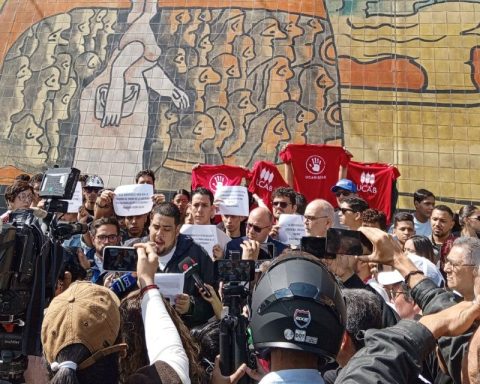A survey conducted in December 2022 found that business owners are less willing to hire people from the Lgbti community. «The rejection of hiring lesbians is 19%, in the case of gays it is 20%, 23% for bisexuals and 36% for trans people»
Within the spectrum of the Lgbti community, trans people are the most discriminated against and excluded in labor matters. “Trans people are the most affected by this situation, facing less willingness to be hired, greater barriers to interaction with coworkers, and suffering high levels of stigmatization that reduces them to a small group of economic activities,” indicates a national survey carried out by Equilibrium Cende in December 2022, which was intended to measure the levels of knowledge and perception of this community and which was presented in the report «Social perception of the Lgbti community in Venezuela».
“Yes one trans person wishes to opt for a job opportunity, you must give up your expression gender while meet at work fit within the norms social”, the majority of those consulted in this survey think.
Trans people also suffer the highest levels of discrimination compared to gays, lesbians and bisexuals. With the study it was found that on average, 40% consider that gays, lesbians and bisexuals have high levels of discrimination; while in the specific case of trans, the figure reaches 67%.
In this sense, it can be said thattrans people are the most vulnerable group within sexual diversity”.
In everyday life, trans people must face transphobic behaviors and allegations, justified by the disparity between their image and legal identification. “Labor discrimination forces them to meet their economic needs by exercising traditional jobs for their gender (cosmetology services, hairdressing, aesthetics…) or other highly risky options such as the sex trade.”
When analyzing the results of the survey in the question about the willingness to hire Lgbti people, in case of being the owner of a company. «The rejection of hiring lesbians is 19%, in the case of gays it is 20%, 23% for bisexuals and 36% for trans people».
In the report “Social perception of the Lgbti community in Venezuela” it is detailed that male gays are the least discriminated against, for concealing or suppressing effeminate gender expressions or that could be related to homosexuality.” Then there are the feminized gays, who do not hide and, therefore, are “discriminated through ridicule, derogatory comments, among others.”
Third, there are lesbian women, who not only face challenges associated with the expression of masculinity or femininity and discrimination in the labor market for women. They are also exposed to corporate disadvantages associated with patterns of beauty and aesthetic valuation of features, “being victims of harassment by men as a method of ‘correcting’ their preferences.”
Post Views: 55














